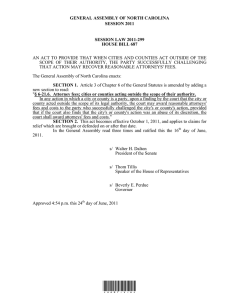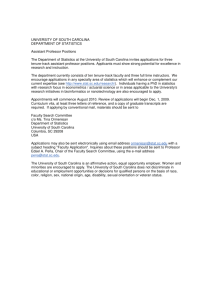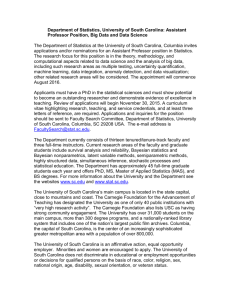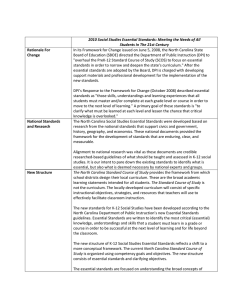MONEY, KIDS, CREDIT AND SCHOOL By: Jeffrey A. Andrews as
advertisement
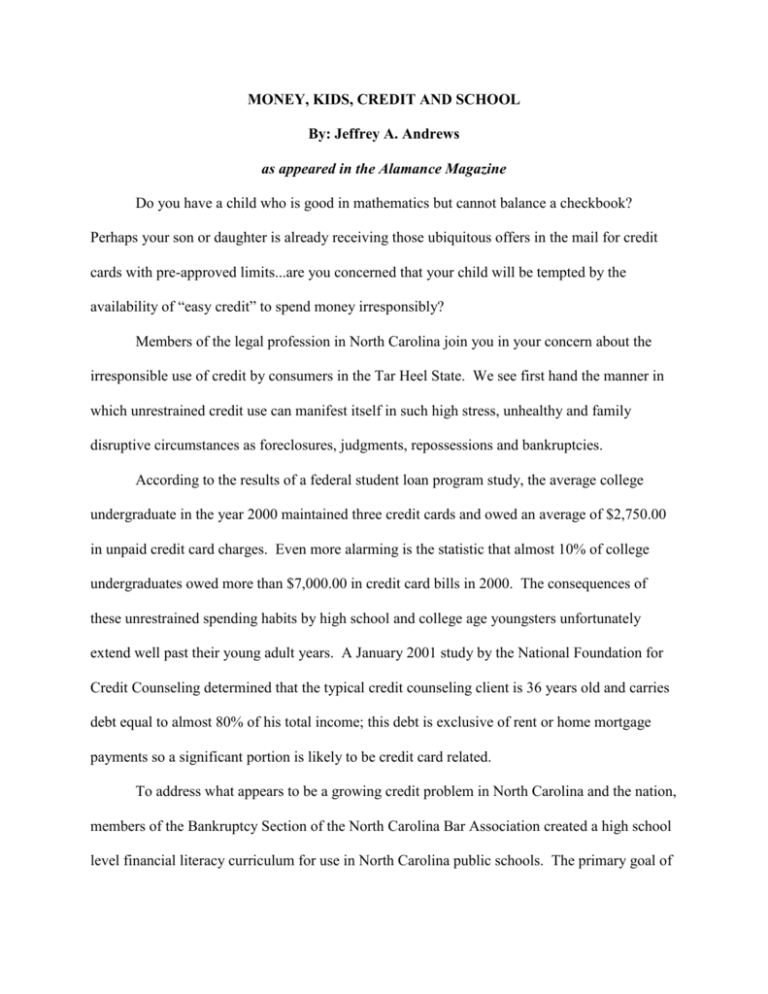
MONEY, KIDS, CREDIT AND SCHOOL By: Jeffrey A. Andrews as appeared in the Alamance Magazine Do you have a child who is good in mathematics but cannot balance a checkbook? Perhaps your son or daughter is already receiving those ubiquitous offers in the mail for credit cards with pre-approved limits...are you concerned that your child will be tempted by the availability of “easy credit” to spend money irresponsibly? Members of the legal profession in North Carolina join you in your concern about the irresponsible use of credit by consumers in the Tar Heel State. We see first hand the manner in which unrestrained credit use can manifest itself in such high stress, unhealthy and family disruptive circumstances as foreclosures, judgments, repossessions and bankruptcies. According to the results of a federal student loan program study, the average college undergraduate in the year 2000 maintained three credit cards and owed an average of $2,750.00 in unpaid credit card charges. Even more alarming is the statistic that almost 10% of college undergraduates owed more than $7,000.00 in credit card bills in 2000. The consequences of these unrestrained spending habits by high school and college age youngsters unfortunately extend well past their young adult years. A January 2001 study by the National Foundation for Credit Counseling determined that the typical credit counseling client is 36 years old and carries debt equal to almost 80% of his total income; this debt is exclusive of rent or home mortgage payments so a significant portion is likely to be credit card related. To address what appears to be a growing credit problem in North Carolina and the nation, members of the Bankruptcy Section of the North Carolina Bar Association created a high school level financial literacy curriculum for use in North Carolina public schools. The primary goal of this program is to offer ninth graders the tools and confidence needed to engage in the responsible use of credit, thereby reducing consumer bankruptcies and the accompanying emotional and financial toll that runaway consumer debt exerts on the borrowers and their family. The course is entitled “Credit Ready!!!” and was developed through the guidance and input of Susan Hirsch, a Social Studies teacher at East Wake High School. The Credit Ready!!! curriculum was established to be incorporated into the current statewide Civics/Economics ninth grade public high school course of study. The course teaches students basic money management and financial principles as they relate to relevant student social and financial events. I am pleased to say that the Credit Ready!!! program is being considered by a number of public schools across the state including the Alamance-Burlington School System for introduction into the curriculum of all its high schools. One of the factors that may decide the fate of this program in our local schools is whether sufficient classroom participation can be assured from local attorneys and other financial professionals. If you think that this practical, hands on Credit Ready!!! curriculum would be a valuable addition to Alamance-Burlington high school public education, encourage any local attorneys you know to agree to participate in the classroom segment of this program. You could also express your support for this attorney sponsored program to any high school Civics/Economics teachers, School Board members or school administrators with whom you have contact. I believe this North Carolina Bar Association Bankruptcy Section program would make an excellent addition to the current ninth grade curriculum and is another example of the commitment by North Carolina attorneys to the education and improvement of our citizens and our communities. This course is designed to supplement whatever discussions and educational opportunities parents may undertake with their children regarding personal financial choices and the prudent use of credit. In fact, the Credit Ready!!! program is designed not only to provide our youth with basic financial and credit information but to also encourage and promote additional discussion of this important subject among the students, their parents, siblings and peers. Jeffrey A. Andrews is a shareholder and director with the Vernon, Vernon, Wooten, Brown, Andrews & Garrett, P.A. law firm. His practice is concentrated in commercial transactions, estate planning and asset protection, intellectual property and health law.
